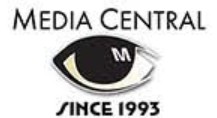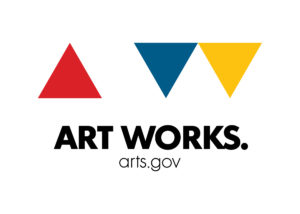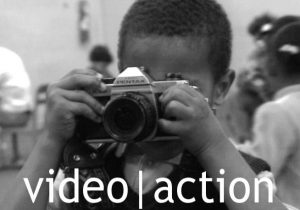By Flo Dwek
![]()
SIGNATURE MOVE (Directed by Jennifer Reeder, 1 hr, 20 min.)
 If you were not among the lucky filmgoers who caught SIGNATURE MOVE at DC’s Reel Affirmations Film Festival on October 19, you are in for a treat when it comes to Amazon VOD at the end of December.
If you were not among the lucky filmgoers who caught SIGNATURE MOVE at DC’s Reel Affirmations Film Festival on October 19, you are in for a treat when it comes to Amazon VOD at the end of December.
This small, romantic gem of a film, directed by award-winning indie filmmaker Jennifer Reeder (BLOOD BELOW THE SKIN, A MILLION MILES AWAY), dazzles with the young, firebrand actor Fawzia Mirza in the starring role. Impish and intense, Mirza (who also co-wrote the comically powerful screenplay with Lisa Donato) captivates as Zaynab, a boyish and reserved Pakistani lesbian living in Chicago, who falls for Alma (Sari Sanchez), a sultry, uninhibited lesbian of Mexican descent. Sanchez and Mirza set the screen aglow with their good looks and mischievous lovers’ gambits.
Their two mothers are a study in cultural and personal contrasts. Zaynab’s lonely mother, Parveen (the legendary Indian actor, Shabana Azmi), a traditional Pakistani woman, recently widowed, sits at home all day on a comfy recliner in modest attire, watching melodramatic TV shows and Pakistani films. She pines for a husband for Zaynab and spies out the window on potential suitors with binoculars. Alma’s mother, Rosa (Charin Alvarez), a vivacious woman with energy to spare, talks up a storm, dispenses rapid fire advice in Spanish, and reminisces often about her early career as a feisty, Lucha-style wrestler. While Parveen is blissfully unaware of Zaynab’s secret life as a lesbian, Rosa relishes her open, no-holds-barred relationship with Alma.
This edgy, yet tender-hearted film sets off the most sparks when it ignites the writers’ symbolic and physical wrestling motifs to explore and illuminate the lives of its characters. Zaynab wrestles with her uncommon identity as a lesbian, a Pakistani woman, a Muslim and a devoted daughter. Alma and Zaynab take pleasure in their pent-up passions, only to wrestle afterwards with a super-charged relationship. A melancholy and frustrated Parveen wrestles with parenting and cultural norms and her inability to relate to her only daughter. And Zaynab grapples with some real-life wrestling—both for sport and competition—mentored by her tough-as-nails trainer, Jayde (Audrey Francis). In the capable hands of cinematographer Christopher Rejano, the screen resonates with true to life images and energy.
SIGNATURE MOVE smacks us down in an uproarious ringside seat as it tackles culture, tradition and media and their choke hold on our beliefs, values and relationships. The real winners in this life-long match are the defiant individuals who stay true to themselves as they define just who and what they are meant to be in this chaotic world.
A Conversation With Fawzia Mirza of SIGNATURE MOVE
By Flo Dwek

WIFV: What prompted you write this screenplay? Was it semi autobiographical?
MIRZA: The story is not autobiographical but is definitely inspired by my actual relationship with a Mexican woman in the city of Chicago. We fell in love during a beautiful summer and found connection across our seemingly different cultures–our food, our families, our culture, our mothers, our obsession with mangoes and cilantro. I wanted to capture that connection and wrote a short screenplay, “Signature Move”. I’ve never wrestled professionally but had met a former WWE wrestler when we were both guests on a late-night comedy talk show. She performed her ‘finishing move’ or ‘signature move’ on the host. And it made me wonder where were the stories of these women in modern feminism. It also felt like I could create another unexpected connection between Zaynab and Alma [the two lovers]. I was encouraged by my producer, Eugene Park, to turn the short screenplay into a feature. I had never done that before, so I called my friend, Lisa Donato, with whom I had a fantastic creative connection and asked her to write the first draft of the film in a week with me in LA. She said “yes”!
WIFV: What challenges did you have in making this film?
MIRZA: It’s a challenge to be women writers, have a woman director, have an all female cast telling a story about women. On top of that, the story is about women, and not just any women, but South Asian, Mexican and lesbian women; and then we put subtitles in some parts of the film, depicting the speech of immigrant families. Telling a story this authentic is definitely a challenge. When people buy or distribute movies, every category I just listed makes it less ‘sellable’ or ‘viable’ or ‘marketable’ or ‘commercial’. We were just being real. That’s why indie film is so important and making your own work matters so much, so that you don’t have to rely exclusively on a broken system to support your dreams and your art and your truth.
WIFV: What are the takeaways from this film? What would you like the audience to remember and think about most?
MIRZA: There are a few takeaways, I think:
– This is a normal representation of all these groups and all these women. No one is “exotified”. Not women, not Muslims or Mexicans or Pakistanis or lesbians. This film is radical in that it is a depiction of these women being normal, falling in love, feeling sad and lonely, keeping secrets, not communicating, and wrestling with aspects of life.
– It’s a “rom-com” and maybe a “mom-com” and maybe even a Muslim melodrama, but it is told through the female gaze.
– If we can connect to human beings different than us, by seeing our similarities, we can find empathy with them and maybe change the narrative for all of us.
WIFV: Do you feel you have broken new ground regarding any particular LGBTQ concerns or themes?
MIRZA: I can safely say that there is no other Muslim, Mexican, Pakistani, lesbian, wrestling film in the world! I do believe that there are very few positive representations of intersectional stories or families or women. And this is told through the female gaze, which we do not get enough of in general but also when it comes to these specific groups of people and their stories in particular.
WIFV: One of your motifs had to do with how art informs life and vice versa. How was Parveen (the Pakistani mother) influenced by all those TV shows and Pakistani films?
MIRZA: I think it’s deeply relatable that we are influenced by the media we consume. (Which is why it’s so important to depict positive representations of all these groups). The TV shows are reflective of the media that exists in South Asian culture that some of us buy into and some of us do not. Some of us escape the clutches of the beauty product ads, for example, and some of us do not. The TV is a great sub- plot for the characters, a story of star-crossed lovers struggling to make it in light of their familial differences. It’s also reflective of how one can sometimes find great comfort in something like a drama, when one is so far, geographically, from one’s homeland.
WIFV: Another motif had to do with seeing, denying and choosing to see what was in front of you. How did Parveen’s use of binoculars underscore these themes?
MIRZA: The trope of the mother seeking a suitable suitor for her child is something we have seen time and time again across cultures. How she seeks out that suitor, however, felt like something really fun to play with. If you confine the mother to the home, take it to an extreme where she doesn’t want to leave because she is depressed and lonely, then what’s a really fun way for her to still find her daughter a husband? Binoculars!
WIFV: What was the symbolism behind the wrestling scenes and why did you focus on women wrestlers? Are you, like your character, Zaynab, continuing to wrestle?
MIRZA: Wrestling felt like a great connection between the Pakistani character and the Mexican character, an unexpected connection to add between the women and across their cultures. I don’t think Muslim women are depicted as having strength or power or hobbies or getting so physical, so it felt really fun to play with all that through the wrestling. And, I think we are all always wrestling with something in our lives. I think that’s deeply relatable. As far as myself, of course, I am in a constant state of wrestling.
WIFV: Above all, is this a film about the influence of culture and tradition on our upbringing and identity?
MIRZA: I think the film can be about a lot of things. But, living in the West, we are deeply influenced by western culture and media; and being of the Diaspora, we are influenced by where we came from versus where we are. That has definitely been a great theme across all my work– the influence of the East and the West and how it manifests at any given moment in me. I believe that in order to be who you are, especially as the child of immigrant parents, you have to create your own space and identity. And the influences that shape you, whether they be Eastern or Western are beautiful and valid and shape who you are and who you want to be.
WIFV: There are so many strong women in this film. What does each character represent to you and bring to the story? (Alma, Zaynab, the two mothers, and the trainer.)
MIRZA: One of the greatest relationships to me is the mother-daughter relationship, both between Zaynab and Parveen and also between Alma and Rosa. One relationship is more like one I experience and the other is a more ideal version of what I thought I always wanted. They are both beautiful and important and grounded in reality and complicated. I crave mentorship and am influenced by THE KARATE KID (I mean, I look like Ralph Maccio!), and so Jayde [the trainer] serves that purpose, somewhat.
WIFV: Thank you so much for your time and efforts on our behalf. We hope to see you in Washington some time soon!
MIRZA: My pleasure. Peace and respect to everyone in the WIFV community.
Watch the trailer for SIGNATURE MOVE:
















